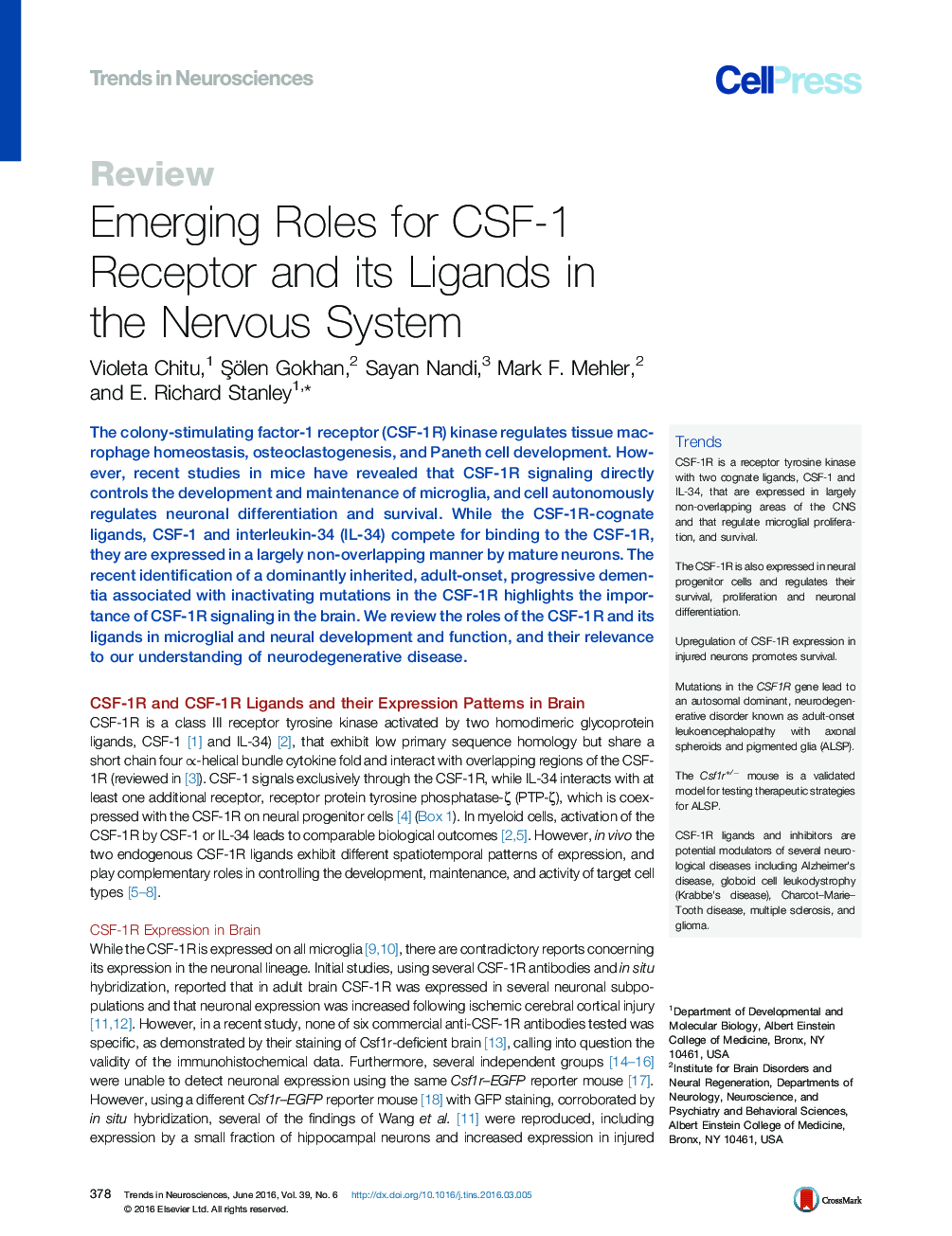| Article ID | Journal | Published Year | Pages | File Type |
|---|---|---|---|---|
| 4354128 | Trends in Neurosciences | 2016 | 16 Pages |
The colony-stimulating factor-1 receptor (CSF-1R) kinase regulates tissue macrophage homeostasis, osteoclastogenesis, and Paneth cell development. However, recent studies in mice have revealed that CSF-1R signaling directly controls the development and maintenance of microglia, and cell autonomously regulates neuronal differentiation and survival. While the CSF-1R-cognate ligands, CSF-1 and interleukin-34 (IL-34) compete for binding to the CSF-1R, they are expressed in a largely non-overlapping manner by mature neurons. The recent identification of a dominantly inherited, adult-onset, progressive dementia associated with inactivating mutations in the CSF-1R highlights the importance of CSF-1R signaling in the brain. We review the roles of the CSF-1R and its ligands in microglial and neural development and function, and their relevance to our understanding of neurodegenerative disease.
TrendsCSF-1R is a receptor tyrosine kinase with two cognate ligands, CSF-1 and IL-34, that are expressed in largely non-overlapping areas of the CNS and that regulate microglial proliferation, and survival.The CSF-1R is also expressed in neural progenitor cells and regulates their survival, proliferation and neuronal differentiation.Upregulation of CSF-1R expression in injured neurons promotes survival.Mutations in the CSF1R gene lead to an autosomal dominant, neurodegenerative disorder known as adult-onset leukoencephalopathy with axonal spheroids and pigmented glia (ALSP).The Csf1r+/− mouse is a validated model for testing therapeutic strategies for ALSP.CSF-1R ligands and inhibitors are potential modulators of several neurological diseases including Alzheimer's disease, globoid cell leukodystrophy (Krabbe's disease), Charcot–Marie–Tooth disease, multiple sclerosis, and glioma.
